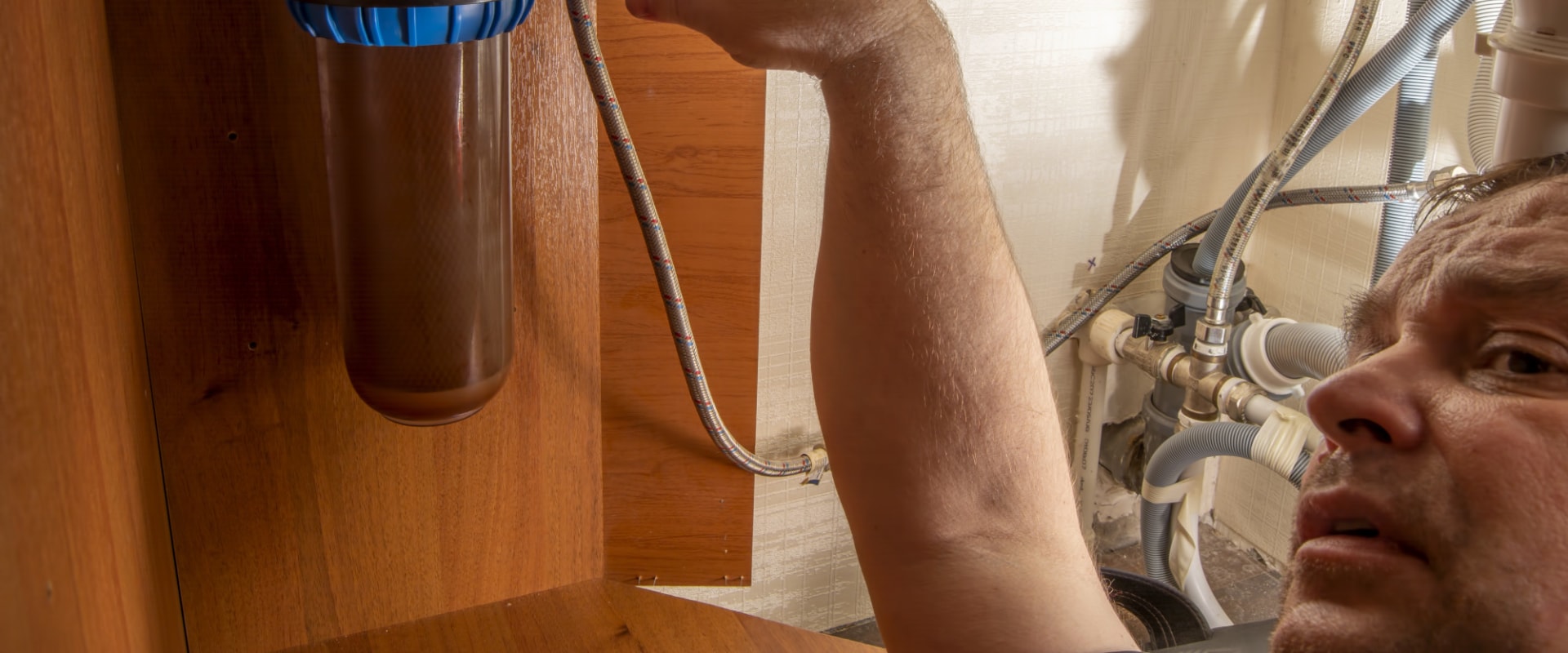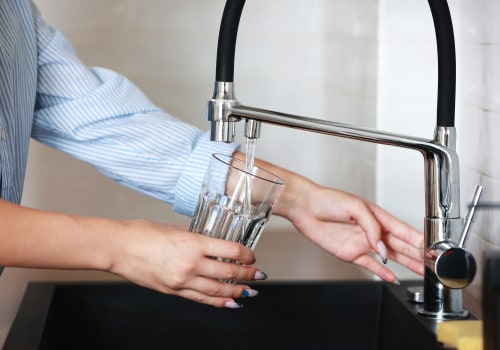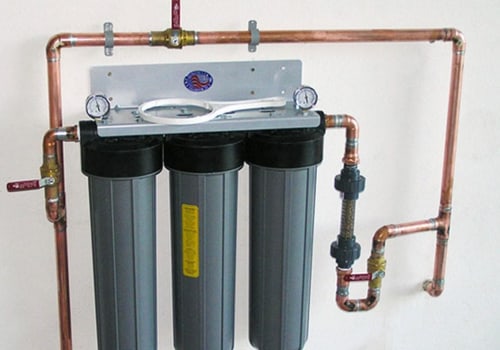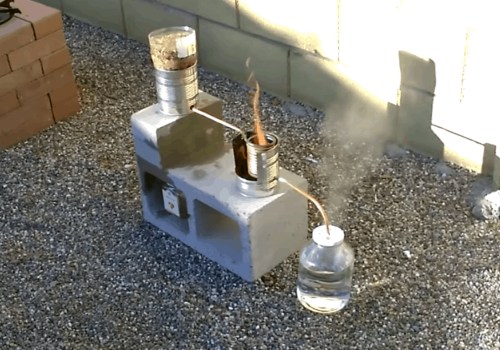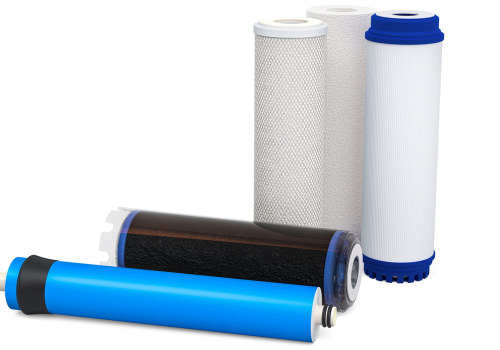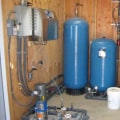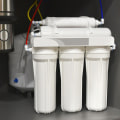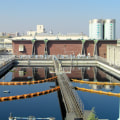You may think that drinking water straight from the tap is safe, but did you know that it's actually full of contaminants? Yes, you read that right. Your seemingly harmless tap water can contain harmful chemicals and bacteria that can have negative effects on your health.
But don't worry, there's a solution to this problem – water filtration systems.
In this article, we'll take a deep dive into the world of water filtration systems and explore the different types of filters available in the market today. From whole house systems to UV filters, we'll discuss how each one works and what benefits they offer.
You'll also learn about installation and maintenance requirements for each type of filter so you can make an informed decision when choosing the best system for your home.
So sit back, relax, and quench your thirst for purity with our comprehensive guide to water filtration systems!
Whole House Water Filtration Systems
You'll find that whole house systems provide comprehensive filtration for your home's water supply, ensuring that every tap in your house delivers clean and safe drinking water. House water filters are essential to maintaining water quality, and whole-house water filter systems can make a significant difference in the taste, odor, and clarity of your drinking water.
These systems use multiple stages of filtration to remove impurities from the entire household's water supply. One major advantage of a whole-house system is its low maintenance requirements. You won't need to replace individual filters as often since these systems have longer-lasting cartridges that only require replacement once or twice a year.
Whole-house systems also come with easy-to-use controls that allow you to adjust the level of filtration according to your specific needs. With so many benefits, it's clear why whole-house water filtration systems are growing in popularity among homeowners seeking pure and safe drinking water.
Now let's dive deeper into the different types of filters available on the market today.
Types of Filters
In this section, we'll explore different types of filters that can remove up to 99% of contaminants in your drinking water, giving you peace of mind and better health.
When it comes to house water filtration systems, there are various types of water filters available in the market. The most popular ones include carbon filters, reverse osmosis systems, and UV water filters.
Carbon filters are commonly used in households as they're affordable and effective in removing chlorine taste and odor from the water. These filters work by adsorption where pollutants stick to the surface of the carbon while the clean water passes through.
Reverse osmosis systems use a semipermeable membrane that removes impurities such as bacteria, viruses, dissolved salts, and heavy metals from the water.
UV water filters kill bacteria and viruses by exposing them to ultraviolet light. They're also useful in eliminating chemicals like pesticides and herbicides from your drinking water.
With these different types of filters at your disposal, you can choose one that best suits your needs for cleaner drinking water.
Moving on to salt-free conditioner...
Salt-Free Conditioner
Let's check out the salt-free conditioner, a fantastic alternative to traditional water softeners that can keep your plumbing free of mineral buildup without sacrificing taste or quality.
Unlike regular softeners that use salt, this type of filter does not add any chemicals to your water system. This means you can still enjoy cleaner water without having to worry about harmful contaminants that may affect human health.
Salt-free conditioners work by converting hard minerals in the water into harmless crystals. These crystals will not adhere to surfaces like pipes and fixtures, preventing them from accumulating over time.
With this type of filtration system, you can have peace of mind knowing your plumbing is protected while also enjoying great-tasting and healthier water.
Now let's move on to the next section about UV filters and how they can further enhance the quality of your drinking water.
UV Filter
If you want to ensure that harmful microorganisms don't make their way into your drinking water, a UV filter is an excellent option. These filters use ultraviolet light to kill bacteria, viruses, and other contaminants that can cause health effects.
Here are five benefits of using a UV filter in your water filtration system:
- Effective against a broad range of microorganisms: Unlike other filtration systems, UV filters are effective against all types of harmful microorganisms.
- Chemical-free: UV filters don't use any chemicals or additives to purify the water, making them environmentally friendly.
- Low maintenance: Once installed, the UV filter requires minimal maintenance and doesn't need any replacement parts.
- Easy installation: The installation process for a UV filter is relatively simple and doesn't require any special tools or skills.
- Cost-effective: Compared to other types of water filtration systems, UV filters are less expensive and offer better value for money.
When it comes to installing and maintaining a UV filter in your water filtration system, there are certain steps you need to follow. By ensuring that you get these right, you can be sure that your water is always clean and safe for consumption.
Installation and Maintenance
Get ready to experience the easiest, most hassle-free installation and maintenance process ever with a UV filter - it's like a walk in the park! Unlike other water filtration systems, installing a UV filter requires minimal technical expertise. All you need is to follow the manufacturer's instructions and connect it directly to your existing water supply line. It doesn't require any additional plumbing or electrical work.
Maintenance of a UV filter is also very straightforward. You only need to replace the lamp once per year and clean the quartz sleeve periodically to ensure that it remains free from sediment buildup. Replacement filters are not required for this type of system since there are no physical barriers for water flow.
A good quality UV filter can last up to 10 years depending on its capacity, which means less frequent replacements and lower long-term costs. Now that you know how easy it is to install and maintain a UV filter, let's dive into some of the best water filters available on the market today!
Best Water Filters
You'll discover the top water filters available on the market today in this section, making it easy to choose the right one for your needs without any hassle or confusion.
When it comes to water filtration systems, there are a plethora of options available that can provide you with purified drinking water. Some of the best water filters include activated carbon filters, reverse osmosis systems, UV purifiers, and ceramic filters.
Activated carbon filters work by absorbing impurities and contaminants from the water as it passes through a carbon block. Reverse osmosis systems use a semi-permeable membrane to trap contaminants and remove them from the water. UV purifiers use ultraviolet light to kill bacteria and viruses present in the water. Ceramic filters have small pores that trap sediment and bacteria while allowing clean water to pass through.
With so many options available, it's important to choose a system that suits your needs based on factors such as budget, maintenance requirements, and level of purification needed.
As you've learned about some of the best water filters available today, it's time to move on to selecting one that's right for you. Keep in mind factors such as budget and level of purification needed when choosing between these different types of drinking water systems.
Choosing the Right System
Now that you've explored the best water filters available, it's time to figure out which one is right for you and your specific needs.
The first step in choosing the right system is to identify the contaminants present in your water. You can do this by having a professional test your water or using a home testing kit. Once you know what pollutants are in your water, you can select a filter that targets those specific contaminants.
Next, consider the types of filters available and choose one that suits your lifestyle and budget. Some popular options include pitcher filters, faucet-mounted filters, countertop filters, under-sink systems, and whole-house filtration systems. Each type of filter has its own advantages and disadvantages, so it's important to weigh these factors carefully before making a decision.
By taking the time to research different water filtration systems and increasing your water quality awareness, you'll be well on your way to quenching your thirst for purity.
Frequently Asked Questions
What is the difference between a water filtration system and a water softener?
If you're wondering about the difference between a water filtration system and a water softener, it's important to understand their respective functions.
While both systems are designed to improve the quality of your drinking water, they tackle different issues. A water filtration system removes impurities like sediment, chlorine, and bacteria from your tap water. On the other hand, a water softener is used to eliminate hard minerals like calcium and magnesium that can cause scaling in pipes and appliances.
So if you're looking for cleaner drinking water with fewer contaminants, a filtration system may be right for you. But if you have hard water that leaves residue on dishes or fixtures, a softener could be the solution you need.
Can a water filtration system remove all contaminants, including lead and bacteria?
You want to know if a water filtration system can remove all contaminants, including lead and bacteria. The answer is yes, but not all filters are created equal.
Just like how a Swiss Army knife has multiple functions, some filtration systems have multiple stages that target different types of contaminants. It's like having a team of superheroes working together to defeat the bad guys instead of relying on one hero alone.
A good filtration system can remove up to 99% of contaminants, including lead and bacteria, giving you peace of mind knowing that your family is drinking clean and safe water. Don't settle for just any filter; invest in one that goes above and beyond to quench your thirst for purity.
How does a UV filter work to eliminate bacteria and viruses from water?
If you want to eliminate bacteria and viruses from your water, a UV filter might be the solution for you. These filters use ultraviolet light to destroy microorganisms that can cause illness and disease.
When water passes through the filter, it is exposed to UV light, which damages the DNA of any bacteria or viruses present. This prevents them from reproducing and renders them harmless.
One key advantage of UV filtration is that it doesn't require any chemicals or additives, making it a safe and eco-friendly option for purifying your drinking water. However, keep in mind that while a UV filter can eliminate harmful microorganisms, it may not remove other contaminants like lead or chemicals.
What are the most common maintenance issues for water filtration systems and how can they be addressed?
Maintaining your water filtration system is crucial to ensure it continues to provide you with clean and safe drinking water. However, some may argue that maintenance can be time-consuming and tedious. While it may require a bit of effort on your part, the benefits far outweigh any inconvenience.
Neglecting regular maintenance can lead to clogged filters, reduced water flow, and decreased effectiveness in removing contaminants from your water. To avoid these issues, make sure to follow manufacturer instructions for replacing filters and cleaning the system components as needed.
By taking the time to properly maintain your water filtration system, you'll have peace of mind knowing that you're drinking pure and refreshing water every day.
Are there any health risks associated with using a water filtration system?
Using a water filtration system is generally considered safe and beneficial for your health. However, there are potential risks that can arise if the system is not properly maintained or installed.
For example, if the filter becomes clogged or contaminated, it may actually promote bacterial growth rather than remove it from the water. Additionally, some filters may not effectively remove certain contaminants such as lead or fluoride.
It's important to do your research and choose a high-quality filtration system that meets your specific needs and to regularly maintain and replace the filters as recommended by the manufacturer.
Conclusion
Congratulations! You now have all the information you need to choose the best water filtration system for your home. With a plethora of options available, it can be overwhelming to decide which one is right for you. But fear not, as we've covered everything from whole house systems to UV filters and salt-free conditioners.
By investing in a high-quality water filtration system, you're taking an important step towards ensuring that your family has access to clean and safe drinking water. Not only will this improve the taste and odor of your water, but it'll also protect against harmful contaminants that may be present.
So go ahead and quench your thirst for purity with one of our recommended top-performing water filters. Trust us, the difference in the quality of your drinking water will be so significant that it'll make you feel like you've struck gold – or should we say pure H2O?
